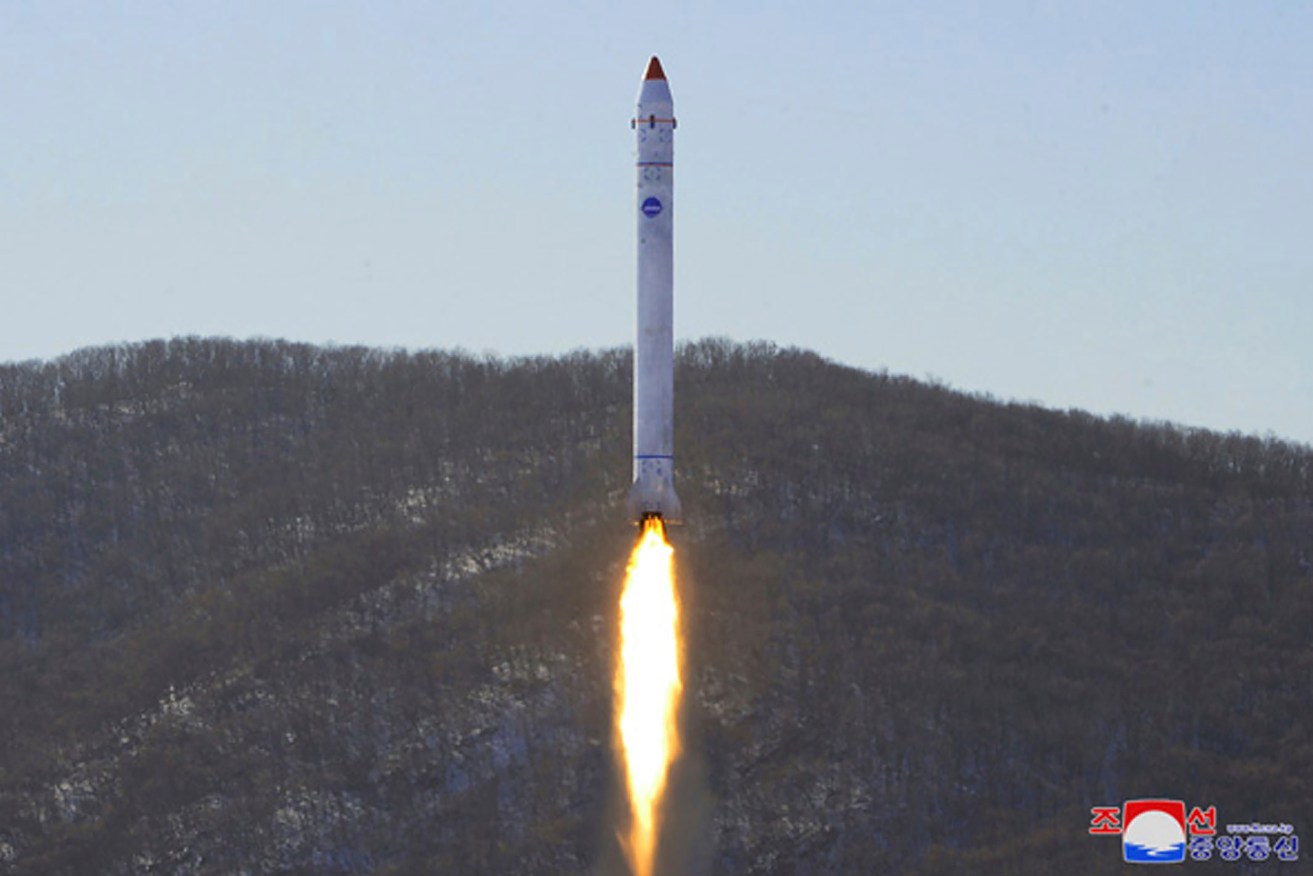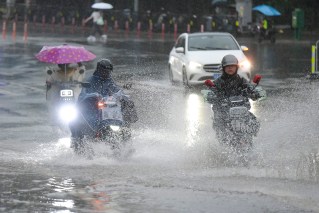North Korea’s second satellite launch attempt fails

North Korea's bid to launch a second satellite rocket has failed, the country's state media says. Photo: AAP
North Korea says its second attempt to place a spy satellite in orbit has failed, but has vowed to try again in October, state media reports
Its first attempt in May also ended in failure when the new Chollima-1 rocket crashed into the sea.
The nuclear-armed country has been seeking to place what would be its first military spy satellite into orbit, saying it eventually plans a fleet of satellites to monitor moves by US and South Korean troops.
“The flights of the first and second stages of the rocket were normal, but the launch failed due to an error in the emergency blasting system during the third-stage flight,” state news agency KCNA said of Thursday’s launch.
The launch prompted an emergency warning in Japan just before 4am over the J-alert broadcasting system, telling residents of the southernmost prefecture of Okinawa to take cover indoors.
About 20 minutes following the alert, the Japanese government followed up with a notice that the missile had passed through towards the Pacific Ocean and lifted the emergency warning.
In a televised press conference, Japanese Chief Cabinet Secretary Hirokazu Matsuno said the repeated missile launches were a threat to regional security.
“We will strongly protest against North Korea and condemn it in the strongest possible terms,” he said.
A US official, speaking on condition of anonymity, confirmed the US military was aware of the North Korean launch but declined to offer details.
Pyongyang has said it needs a military reconnaissance satellite to boost monitoring of US military activities.
But the North’s May 31 bid to launch the Chollima-1 satellite rocket went wrong, with the booster and payload plunging into the sea. State media blamed the setback on an unstable and unreliable new engine system and fuel.
Seoul, Tokyo, and Washington condemned the May launch as a provocation and violation of UN Security Council resolutions banning the North’s use of ballistic missile technology.
South Korea recovered parts of that failed rocket, including the satellite payload, which it said did not appear to have military capability.
The secretive North considers its space and military rocket programs a sovereign right, and analysts say spy satellites are crucial to improving the effectiveness of its weapons.
North Korea has made multiple attempts to launch “earth observation” satellites, of which two appeared to have been successfully placed in orbit, including in 2016.
International observers have said the 2016 satellite seemed to be under control, but there was lingering debate over whether it had sent any transmissions.








